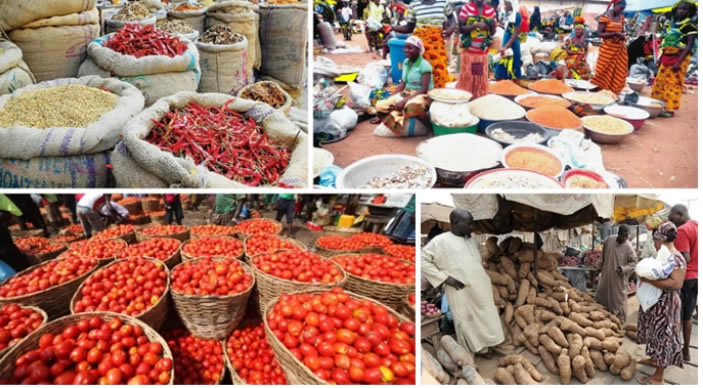
During the visit on Thursday, officials of the commission engaged with various trade associations, traders and marketers at the markets to identify the remote factors behind the rise in food prices, particularly in staple commodities.
The South-East Zonal Coordinator of FCCPC, Jude Akolam, while addressing market leaders on their mission to the markets said the Federal Government has sent them on a “fact-finding mission” to find out why the cost of food items is on the increase.
Akolam said that after the findings, the commission would advise the Federal Government appropriately on how to check the menace of constant hikes in foodstuff.
He said, “The findings will assist the Federal Government to plan for the people. Without these findings, it might be difficult to plan ahead. The constant hikes in prices of commodities, especially food stuffs is becoming worrisome, hence this move by the commission.
“During the engagement, the Commission will gather insights from market executives, sellers, and consumers to identify challenges and propose solutions. We will also gather the importance of compiling a detailed report on every activity and provide actionable recommendations to the Federal Government.”
He, however, wants the government at all levels to intervene on the issue of insecurity to enable farmers to go to farms and reduce the hardships in the land, adding that people are suffering and finding it extremely difficult to feed their families.
During the engagement, some of the traders at Ose Okwudo Market blamed insecurity and the high cost of transportation for the escalating cost of foodstuff in the country.
The Chairman of the market, Chief Ikechukwu Umuanozie, represented by the market Secretary, Onyejikwe Cypril, stated that if the issues of insecurity and cost of transportation are reduced, prices of foodstuffs would go down.
Umuanozie said, “The Federal Government should adequately look into these issues for food items in the country to be affordable. Farmers are no longer going to farms because of insecurity and the dealers too are being robbed often by criminals while in transit.
“For us to have reduced cost of foodstuff, the farmers must be allowed to go to farmland and farm. How can someone go to the farm and he is killed or kidnapped and you want others to go there?
“Many people are afraid of going to farm for their safety. Apart from the farmers, traders get attacks on the roads and a lot of us are afraid of travelling out to buy goods.
“Before now, people used to get loans to farm, but today, even if the loans are given, where can the person farm? The cost of fueling vehicles was cheap before, but today it takes a fortune to fuel vehicles and the transporters will charge higher and we have to add the cost to the goods.”
Contributing, a grain seller, Celestine Udealo, said apart from insecurity and cost of transportation, climate change is a serious problem escalating food prices.
Udealo said, “Extortions at security checkpoints are another factor, before now, we paid N6,000 at any produce checkpoint, but today, we are paying N30,000 at a checkpoint. Before now, we get our goods from Borno, Taraba, Benue and Kebbi states, but today, we hardly get good stuff because of the insecurity and cost of transportation.
“Climate change is also causing problems because farm produce such as okro, and potatoes planted by those around Anambra riverine areas could not survive because of climate change.”
A beans seller, Emmanuel Ndubisi, in his contribution, said that last year a bag of beans was N80,000, but today, it is about N230,000 to N260,000 depending on the type, while also disclosing that last year, a bag of groundnut was N90,000 but today it is sold at N185,000, and a bag of maize was N45,000 last year but today is N100,000.
Also, Anthony Mozo, a yam seller, identified insecurity and transportation as major reasons responsible for the high cost of foodstuff.
He also attributed the fuel subsidy as another major cause of the rising cost of foodstuff in the country.
According to him, the money they pay at the produce checkpoint has increased from less than N200,000 to over a million.
He also disclosed that a trailer to convey a trailer load of yams from Benue state to Onitsha cost N25 million against N2 million last year.
A potato seller, Philomena Ikemaka, described the high cost of foodstuff as punishment to the poor masses.
According to her, before now, a bag of potatoes was N8,000, but today, it is N15,000 to N16,000, adding that even those bringing the food items to the market are no longer coming often.
“Before now, we normally get about five or six trucks and five vessels coming into the market every day and today, we hardly get one vehicle and one vessel in day,” she added.










